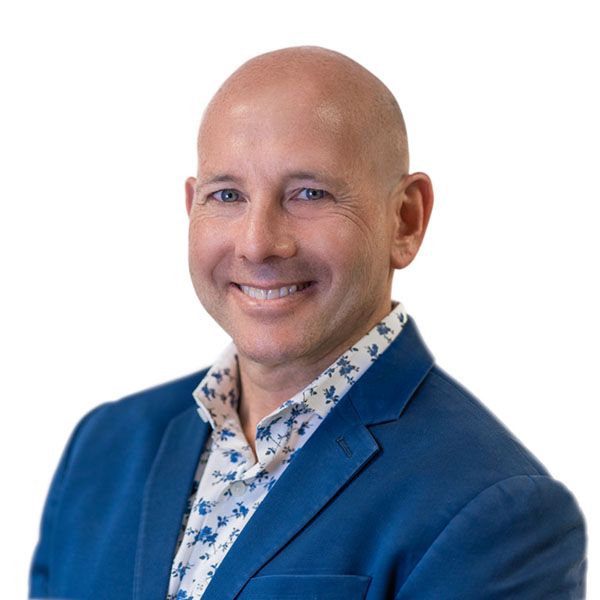Assisting Family Members Fight Addiction: A Step-by-Step Approach

Addiction can have a significant influence on not only the individual battling with substance misuse or obsessive behaviors but also their entire family. To properly handle this complicated and demanding issue, a compassionate and diverse strategy is required. Supporting someone through addiction, whether as family members, friends, or loved ones, can be both emotionally difficult and gratifying.
In this guide, we'll look at practical tactics and ideas to help family members combat addiction. From encouraging open communication and practical support to encouraging long-term rehabilitation and emphasizing self-care, each facet is critical in the journey to healing and resilience. Understanding addiction, creating appropriate boundaries, and seeking professional help can help us create a supportive environment in which people can face their addictions with courage and drive. Together, we can negotiate the difficulties of addiction, providing hope, empathy, and steadfast support to our loved ones as they work toward recovery.
Understanding Addiction
Understanding addiction is critical for effectively supporting people who struggle with substance misuse or compulsive behaviors. Here are a few crucial elements to consider when attempting to comprehend addiction:
1. Educate Yourself About Addiction
The first step in comprehending the complexity of addiction and providing meaningful support to those impacted by it is to educate oneself about the disease. When looking to educate oneself about addiction, here are some important elements to consider:
- Definition and Types: Go over the basics of addiction and how it manifests itself. You'll learn about substance addiction (like drugs) and behavioral addiction (like shopping, gaming, and gambling).
- Biological Factors: Get to know the science of addiction and how drugs alter brain chemistry and function, as well as the brain's reward system.
- Psychological Factors: Learn how stress, trauma, coping mechanisms, and co-occurring mental health illnesses contribute to the onset and maintenance of addictive behaviors.
- Social and Environmental Influences: Think about how things like cultural norms, money, family relationships, and peer pressure affect addiction rates and trends.
- Risk Factors and Protective Factors: Discover what makes you more prone to addiction and what helps you stay strong in the face of adversity.
- The Addiction Cycle: Learn about the steps involved in the addiction cycle, which might include relapse and remission phases, as well as the phases of beginning, increasing, maintaining, and finally, recovering from the addiction.
- Impact on Individuals and Families: Addiction has far-reaching consequences for people's physical and emotional well-being as well as their relationships, financial stability, and general standard of living.
- Stigma and Discrimination: Overcoming the prejudice and discrimination that surrounds addiction is crucial, as it prevents people from getting the help they need, including treatment, social support, and understanding and empathy from those around them.
- Treatment and Recovery options: Psychotherapy, medication-assisted treatment, support groups, holistic therapies, harm reduction tactics, and other treatment options should be familiar to you as you explore your options for recovery from addiction.
- Relapse Prevention and Aftercare: Investigate methods for preventing relapse and providing continuous aftercare to help people stay sober and deal with stresses and triggers in the long run.
- Trauma-Informed Care: Consider the significance of trauma-informed care in tackling addiction, acknowledging the influence of prior trauma on substance use and recovery, and incorporating trauma-sensitive methods into support and treatment programs.
Cultural Competence and Diversity: Understand that individuals impacted by addiction come from all walks of life and have different cultural backgrounds, values, and points of view. Work to offer support that is both culturally competent and inclusive, taking these factors into account.
2. How Does Addiction Manifest?
The many forms that addiction can take include changes in one's behavior as well as their mental and physiological health. A person's physical health may decline, their appetite may change, and their sleep patterns may become disturbed. Mood swings, impatience, worry, sadness, and impaired judgment are some of the psychological symptoms of addiction. It manifests itself behaviorally through hiding one's activities, avoiding others, shirking one's duties, and taking risks.
The inability to refrain from using substances or engaging in compulsive activities, despite knowing that they are harmful, is a characteristic of addiction. Individuals may acquire tolerance, require increased doses, and experience withdrawal symptoms upon cessation. Cravings and an obsession with using drugs or engaging in addictive behaviors overshadow other aspects of life.
The effects of addiction on one's daily life, relationships, and leisure activities might worsen with time. When confronted with the reality of their addiction, many people act defensively or deny its seriousness, making it difficult for them to accept help.
To provide effective treatment and assistance at the right time, it is essential to recognize the many signs of addiction. People may help each other, build resilience, and find strategies to recover by learning how it affects their physical health, mental health, and social functioning.
3. What are the Root Causes of Addiction?
Addiction stems from a complex web of interrelated factors. Hereditary factors and physiological weaknesses may heighten an individual's vulnerability to addiction.
Substance abuse and obsessive behavior are common responses to co-occurring mental health disorders such as anxiety and depression.
Cultural norms, dysfunctional family dynamics, stress, and traumatic experiences are some of the social variables that play a role in the onset of addiction. Substance abuse and maltreatment are examples of adverse childhood events that might impair brain development and heighten the likelihood of addiction in adulthood.
Tolerance, dependency, and compulsive use and seeking are symptoms of addiction, which are characterized by changes in the brain's reward system. The way people in society feel about addiction and how their peers accept addictive behaviors greatly impact how individuals think and act when it comes to addiction. Addiction to substances is one of the maladaptive coping mechanisms that can be triggered by traumatic situations.
Because addiction is the result of a complex interaction of biological, psychological, social, and environmental elements, it is essential to understand these causes to create successful treatment and preventive programs.
How to Help a Family Member with Addiction?
Supporting a family member with addiction requires compassion, understanding, and patience. Here are some steps you can take to help them:
- Encourage Open Dialogue: Make your loved one feel secure enough to talk about their addiction without worrying that you will judge or criticize them. Give them the space they need to talk about how they're feeling and what's bothering them.
- Master the Art of Active Listening: Pay close attention while a family member opens up about their struggles with addiction, including their feelings, thoughts, and experiences.
- Give Support and Love: Tell your loved one that they have your undying love and that you will be there for them every step of the way while they get well.
- Assist in Choosing a Treatment Program: If a loved one needs individualized medical care, you should do all you can to help them find it. Some examples of this kind of treatment include holistic approaches, support groups, outpatient therapy, and residential rehabilitation programs.
- Help with Logistics and Practical Matters: Provide hands-on support with treatment and recovery program administration, including appointment scheduling, transportation arrangements, and paperwork management. You can make it easier for them to get the resources they need by easing logistical burdens.
How to Establish Boundaries While Helping a Family Member with Addiction?
While supporting your family member, you must also take care of yourself by:
- Establish Limits and Be Consistent: Within your family dynamic, set firm limits that spell out what is and isn't appropriate conduct about addiction. Promote accountability and mutual respect by politely communicating these boundaries.
- Prioritize Your Health and Well-Being: Put your own physical, emotional, and mental health first by engaging in self-care activities. To refuel your energy and resilience, make time for hobbies, socializing, and leisure.
Looking for Expert Advice
One of the most important steps in helping a family member with addiction is looking for treatment. For this, you should:
- Seek Advice from Mental Health Experts and Addiction Specialists: Seek the counsel of mental health professionals, addiction specialists, and therapists for individualized insights and treatments backed by scientific evidence. Work with these experts to create all-encompassing treatment programs and assistance methods.
- Take Part in Programs for Assistance and Therapy for Families: Participate in family support groups and treatment sessions that focus on the specific difficulties and dynamics of addiction among families. Find ways to talk things out, find common ground, and learn from each other so that you can heal and be reconciled.
- Promote All-Inclusive Care and Comprehensive Assistance: Promote all-encompassing, holistic treatment that takes into account the individual's mental, emotional, social, and spiritual health in addition to their physical health when dealing with addiction.
By implementing these strategies and approaches, you can play a pivotal role in supporting your family member's recovery journey and promoting healing, resilience, and holistic well-being within your family unit. Remember that every individual's path to recovery is unique, and your steadfast support and advocacy can make a meaningful difference in their lives, especially when looking for treatment centers.



